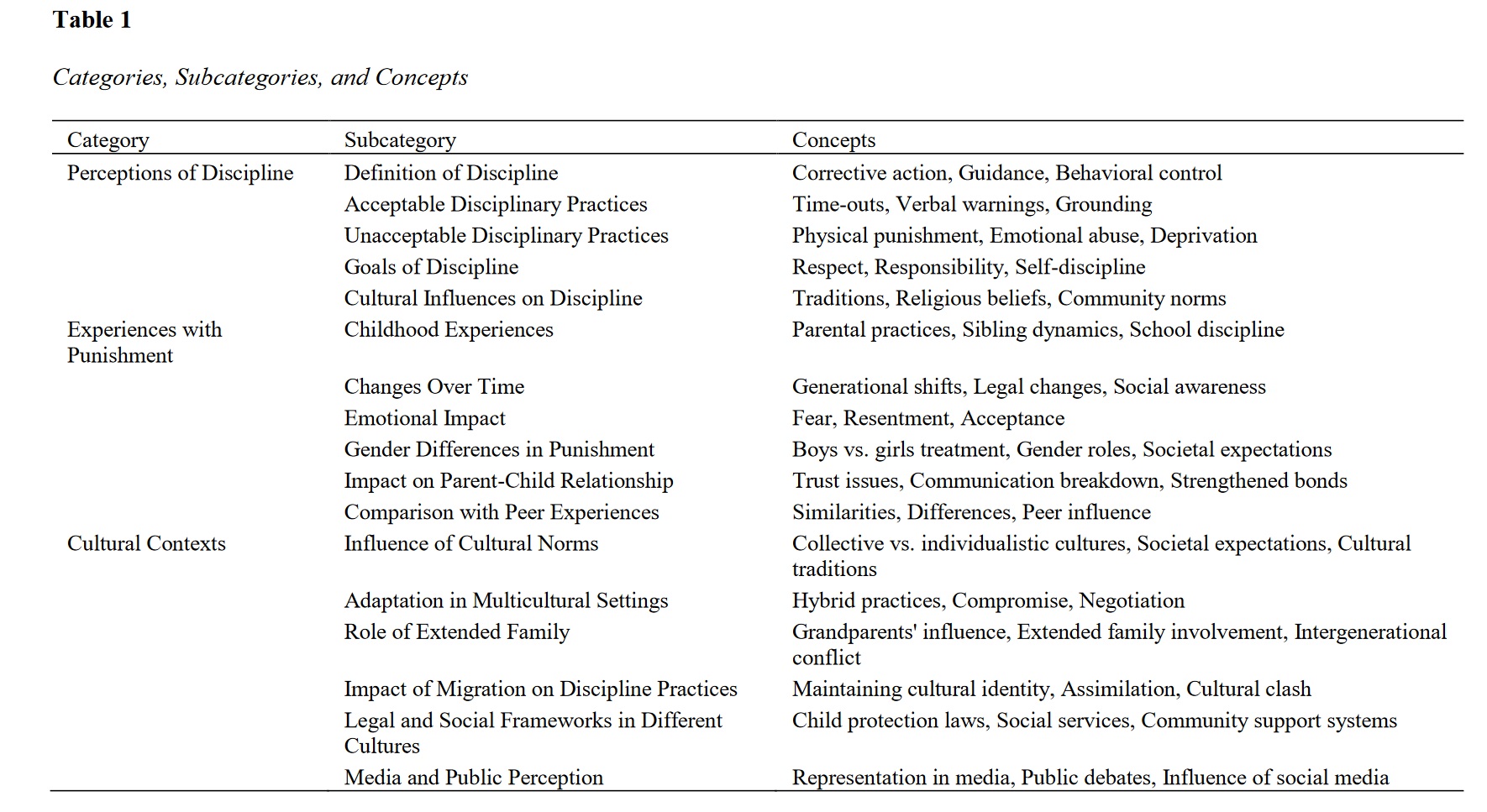Perceptions of Discipline and Punishment in Families from Diverse Cultural Backgrounds
Keywords:
Discipline, Punishment, Cultural Backgrounds, Parenting Practices, Child Development, Thematic Analysis, Cultural Norms, Family DynamicsAbstract
Objective: The objective of this study was to explore the perceptions of discipline and punishment among families from diverse cultural backgrounds. By understanding these perceptions, the study aimed to provide insights into how cultural norms, individual experiences, and societal frameworks influence disciplinary practices within different familial contexts.
Methods: This qualitative research utilized semi-structured interviews to collect data from 23 participants of varied cultural backgrounds. The participants were recruited through community centers, cultural organizations, and social media platforms. Interviews were conducted using a guide developed from existing literature, focusing on definitions of discipline, acceptable and unacceptable practices, and cultural influences. Data were analyzed using NVivo software, employing thematic analysis to identify common themes and patterns across the interviews.
Results: The study identified three main themes: perceptions of discipline, experiences with punishment, and cultural contexts. Participants generally defined discipline as corrective action aimed at guiding behavior and fostering respect, responsibility, and self-discipline. Non-physical methods, such as time-outs and verbal warnings, were preferred, while physical punishment was widely rejected. Cultural traditions, religious beliefs, and community norms significantly influenced these practices. Experiences with punishment revealed generational shifts towards less physical punishment, with emotional impacts ranging from fear to acceptance. The influence of extended family, migration challenges, and legal frameworks were also highlighted, underscoring the complex interplay of cultural and societal factors in shaping disciplinary practices.
Conclusion: The findings underscore the importance of culturally sensitive approaches to discipline and punishment within families. Effective parenting programs and policies should integrate diverse cultural traditions while promoting non-physical disciplinary methods. This study contributes to a deeper understanding of the cultural dimensions of disciplinary practices, offering valuable insights for parents, educators, and policymakers aiming to support the well-being and healthy development of children in multicultural contexts.
Downloads

Downloads
Additional Files
Published
Issue
Section
License
Copyright (c) 2024 Haixin Qiu (Author); Farzaneh Mardani (Corresponding Author); Taf Kunorubwe (Author)

This work is licensed under a Creative Commons Attribution-NonCommercial 4.0 International License.






